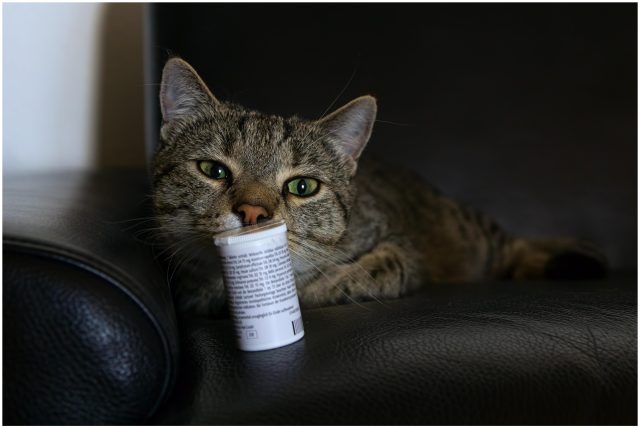In the gentle hum of our daily lives, our pets are the heartbeats that bring warmth and joy to our homes. Whether it’s a wagging tail greeting us at the door or a soft purr on a lazy afternoon, our furry companions are family. But just like us, they sometimes need a little help to stay healthy. Enter the world of pet medications—a vital part of caring for our beloved animals. While these medications work wonders, they can also come with side effects that every pet parent should be aware of. In this article, we’ll explore the common medications prescribed to our four-legged friends and the potential side effects to watch for, ensuring that your pet remains not only healthy but also happy. Let’s embark on this journey together, keeping our companions safe and our hearts full.
Understanding the Basics: Essential Medications for Furry Friends
When it comes to keeping our furry companions healthy and happy, understanding the medications they might need is crucial. From the playful puppy to the wise old cat, each pet may require different treatments during their lifetime. Here’s a look at some essential medications that are commonly prescribed:
- Antibiotics: Often used to combat infections, these can have side effects like digestive upset or allergic reactions. It’s important to monitor your pet for any unusual behavior.
- Anti-inflammatory Drugs: Vital for managing pain and inflammation, especially in aging pets. Keep an eye out for potential side effects such as vomiting or diarrhea.
- Heartworm Preventatives: Essential for both dogs and cats, but can occasionally cause vomiting or lethargy. Consistent monthly dosing is key.
By being aware of these medications and their potential side effects, you can ensure a proactive approach to your pet’s health. Always consult your veterinarian to tailor treatments to your pet’s specific needs.
Spotlight on Side Effects: Recognizing Red Flags in Your Pets Health
Understanding the side effects of pet medications is crucial in ensuring the well-being of your furry friends. While these medications can be life-saving, they may also bring about unintended reactions. It’s essential to keep an eye out for any changes in behavior or health. Here are some red flags to watch for:
- Gastrointestinal Issues: Vomiting or diarrhea can occur with antibiotics or anti-inflammatory drugs.
- Allergic Reactions: Look for signs like itching, swelling, or hives, particularly with vaccines or flea treatments.
- Lethargy: A noticeable drop in energy levels might be a side effect of sedatives or certain pain medications.
- Appetite Changes: Loss of appetite can sometimes accompany medications like steroids.
- Behavioral Changes: Increased aggression or anxiety could be linked to some hormonal treatments.
Being proactive and observant can help in identifying these signs early. If you notice any unusual symptoms, it’s always best to consult with your veterinarian to ensure your pet’s health and safety.

Navigating Treatment: Tips for Managing Your Pets Medication Routine
Managing your pet’s medication routine can feel overwhelming, but with a few strategic tips, you can make it a seamless part of your daily life. Start by creating a consistent schedule. Pets thrive on routine, so try to administer their medication at the same time every day. This not only helps in remembering doses but also ensures that the medication works effectively. Utilize tools like pill organizers or reminder apps to keep track of different medications and their timings.
Incorporate these tips into your routine:
- Disguise Medication: Hide pills in your pet’s favorite treat or a small piece of cheese to make it more palatable.
- Use Positive Reinforcement: Reward your pet with a treat or affection after they take their medicine to create a positive association.
- Track Side Effects: Keep a journal of any changes in behavior or physical symptoms to discuss with your vet.
Remember, patience and consistency are key. Over time, your pet will adjust to the routine, making it a stress-free experience for both of you.

Proactive Pet Care: When to Consult Your Veterinarian
Being attentive to your pet’s health involves recognizing when it’s time to seek professional advice. While some side effects from medications are minor, others may require immediate attention. Here are a few signs to watch for:
- Gastrointestinal Issues: Vomiting or diarrhea can occur with medications like antibiotics or NSAIDs. If these symptoms persist, it’s time to call your vet.
- Behavioral Changes: Unusual lethargy or hyperactivity can be a reaction to medications such as sedatives or stimulants.
- Allergic Reactions: Look for signs like swelling, hives, or difficulty breathing, which need urgent veterinary care.
- Loss of Appetite: While some appetite changes are normal, a prolonged lack of interest in food should be evaluated.
Always trust your instincts as a pet parent. If something feels off, reaching out to your veterinarian can ensure your furry friend stays safe and healthy.


































